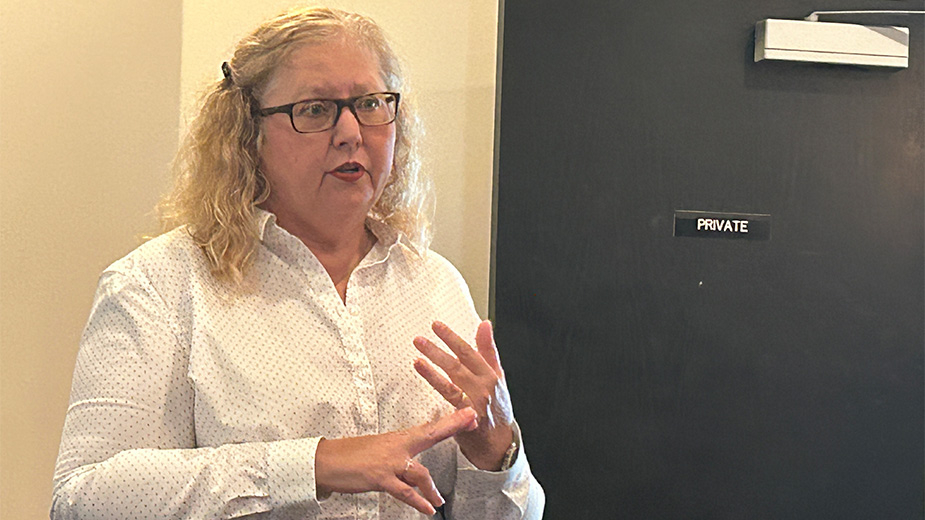Investors Buy into Social Responsibility
YOUNGSTOWN, Ohio — After the Pulse nightclub shooting in Orlando, Fla., in June 2016, David Alt remembers receiving upward of 100 phone calls from investors inquiring about their portfolios.
“They wanted to make sure they weren’t exposed to those gun manufacturers,” says Alt, head of responsible investing at PNC Bank. “Whenever it’s in the news, we get a lot of inquiries.”
When Alt receives such a call, he’s able to evaluate each investor’s portfolio to determine if it has holdings in any company that is generating revenue through the manufacture, distribution or sale of firearms.
For example, he says an investor could have a 6.7% exposure, with 2% from stock in Dick’s Sporting Goods, 2% from Walmart and 2.7% from manufacturers.
“If there is a fund they’re not comfortable with, we’re going to find another fund that doesn’t have that exposure to the civilian firearms, but gives them the same risk and return characteristic they’re looking for without violating what’s important to them,” Alt says.
This type of investing, in which an investor takes into consideration environmental, social or governance issues, is known as socially responsible investing.
Between 2014 and 2016, PNC Wealth Management found the sector grew 33%, especially among the bank’s less wealthy clients.
“We’re seeing it become more mainstream with retail clients who have under $1 million in investible assets,” Alt says.
The minimum balance to responsibly invest depends on the minimum purchase for the exchange-traded fund or mutual fund, which could be very low, he adds.
Bill Shivers, regional president of Huntington Bank, says there’s greater awareness about responsible investing because more information about companies and their products is posted on social media.
“People are trying to become more aware of who the company truly is, what they stand for, how they’re investing back into communities and who they’re using to manufacture their products,” Shivers says.
And it’s not just millennials who are taking the time to learn about companies’ stances.
“It’s anybody,” Shivers says. “We all have beliefs and things we want to support and other things we may not want to. Some companies do an exceptional job and perform very well, so it’s a great investment.”
Among the businesses making strides toward being more socially responsible is EQT Corp., a petroleum and natural gas exploration and pipeline transport company based in Pittsburgh. EQT’s 2018 corporate social responsibility report, “Journey Beyond the Horizon,” highlights its improvements in safety, environmental stewardship, community investment and economic impact.
For instance, in terms of environmental stewardship, EQT states 72% of the water used for its operations in 2017 was derived from recycled water sources.
Earlier this year, EQT joined the One Future Coalition, a group of natural-gas companies working to reduce methane emissions across the industry’s supply chain.
The process for learning whether a customer would be interested in investing in a socially responsible company such as EQT Corp. is the same for any investment client, says Denise Penz, executive director of wealth management at Home Savings Bank.
“We meet with them to come up with their investment objectives,” Penz begins. “The risk tolerance, the investment horizon – all of those things answer the question of what platform the client should land on for investments whether it be self-directed or managed account.”
From there, clients can tell Penz if they’re interested in being socially responsible. Clients may say there are certain companies or industries they want to invest in – or avoid. Among the more common industries investors look to avoid are gambling, tobacco, alcohol, pornography and firearms.
Or a client may not be as specific but want to invest in a company that’s trying to do the right thing from a social standpoint, such as use renewable energy or give back to the communities it does business in.
Advisers at Home Savings do independent research and continuously monitor all types of companies to watch where they stand on socially responsible matters, Penz says.
“When we look at our securities within the fund, we make sure they’re continuing to exclude within their business the things that we believe fall outside of being socially responsible,” she says. “We’re monitoring that and then using the same investment strategy we use for the rest of the market.”
At 7 17 Credit Union, Michael McMahon, financial adviser for the credit union’s retirement and investment group, says members can easily learn where companies stand on social matters by doing a Google search.
Advisers at 7 17 also have access to software programs to further filter through companies and products.
An example of a company responding well to concerns from its customers and investors is Starbucks, McMahon says.
“With all the plastic that is in the ocean and plastic that is in landfills, Starbucks is getting rid of straws and going to the cups with lids,” he says. “There’s a lot of companies that listen to their customer base and try to do the right thing as long as it doesn’t hurt the company. Starbucks is a leader of this and they’re a huge company.”
The demographic of those looking to invest in socially responsible companies stretches across all ages and financial conditions, McMahon says. Stock investments can range from a couple dollars up to hundreds and thousands of dollars.
What matters to socially conscious investors, McMahon says, isn’t just the money.
“There’s a moral return as well,” he says. “You may be giving up some possible return in order to invest in these companies. But every time I’ve brought that up to the people I talk to they say, ‘That’s okay because I’ll be able to sleep at night.’ ”
Copyright 2024 The Business Journal, Youngstown, Ohio.



